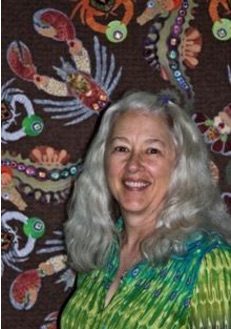by Deborah K. Snider
In 1997, I investigated the extrinsic components of the arts management interview. These were largely outside the control of the applicant, but important to future success of the organization and its staff.
Now, with 17 years of university teaching of classes like Gallery & Museum Practices, Exhibitions & Visual Arts Administration, and Education in a Museum Environment…and the realities of life-lived, I have an evolved perspective. I now want to explore the intrinsic qualities of working in arts management; more of the “emotional fit” of the applicant to the organization.
First of all, it is important to realize that there is benevolent and malevolent leadership. Arts managers can have many personal agendas. I’ve learned that 4% of humans in America are sociopaths. They can undermine, conduct strategic character assassination, disparage others, and be toxic to work with because of their narcissicism, insecurities, and professional jealousy. They create a hostile work environment for everyone. Luckily, they are in the vast minority.
However, no matter where and for whom you work, there will always be “red ants,” those colleagues who get under your skin. To paraphrase Mother Theresa, “In the face of adversity, be wonderful anyway.”
We are essentially problem solvers every day, no matter what our life’s work. Other people’s concerns and grievances will be visited on us. We must commit to extinguishing fires before they rage out of control, hopefully with a win/win outcome for everyone.
Here are some internal questions to ask yourself when interviewing:
- Try not to feel desperate for a job; it is essential that you “read your gut”; is it a good fit for your authentic self, aspirations, values, and professional goals?
- Can you gauge the heart and soul of the organization by talking to employees and community partners before saying “yes”?
- Does the organization desire the change that your leadership may bring?
- Are there “politics of place” that are contrary to your philosophy or life style?
- Is the organization inclusive or exclusive; are there long-standing cliques that lead to a culture of resistance? Will you be treated as an outsider?
- Where might you be blind-sided if you accept this job?
- What will this position feel like after your “honeymoon period”?
- Why do you really want this job? What are your expectations?
- Is there any indication that you will work with bullies, bigots, racists, misogynists, or ageists? (Run away, now!)
- Is what you are being asked to do realistic?
Over the years, I have been greatly influenced by the idea of “passing the gift,” a major platform of Heifer International: the principle that we must cultivate the flow of kindness, compassion, and generosity, evidenced by many cultures and spiritual practices. A second realization is that a career in the arts can be wonderful, inspiring, frustrating, discouraging, and disempowering. If you cannot envision ever being happy without professional, creative immersion, then you are the perfect arts manager!
 Deborah K. Snider holds Bachelor’s and Master’s degrees in Art Education and a Master of Fine Arts in Interdisciplinary Arts. She has directed three community art centers; taught art at all age levels; and administered diverse programs in higher education. She was the 2009 and 2015 Higher Education Art Educator of the Year in Colorado and Utah, respectively, as well as Pacific Region Higher Education Art Educator of 2015 through the National Art Education Association. She is Associate Professor of Art Education and Museum Studies at Southern Utah University.
Deborah K. Snider holds Bachelor’s and Master’s degrees in Art Education and a Master of Fine Arts in Interdisciplinary Arts. She has directed three community art centers; taught art at all age levels; and administered diverse programs in higher education. She was the 2009 and 2015 Higher Education Art Educator of the Year in Colorado and Utah, respectively, as well as Pacific Region Higher Education Art Educator of 2015 through the National Art Education Association. She is Associate Professor of Art Education and Museum Studies at Southern Utah University.
Contact
deborahsnider@suu.edu
435.586.5425 (office)
